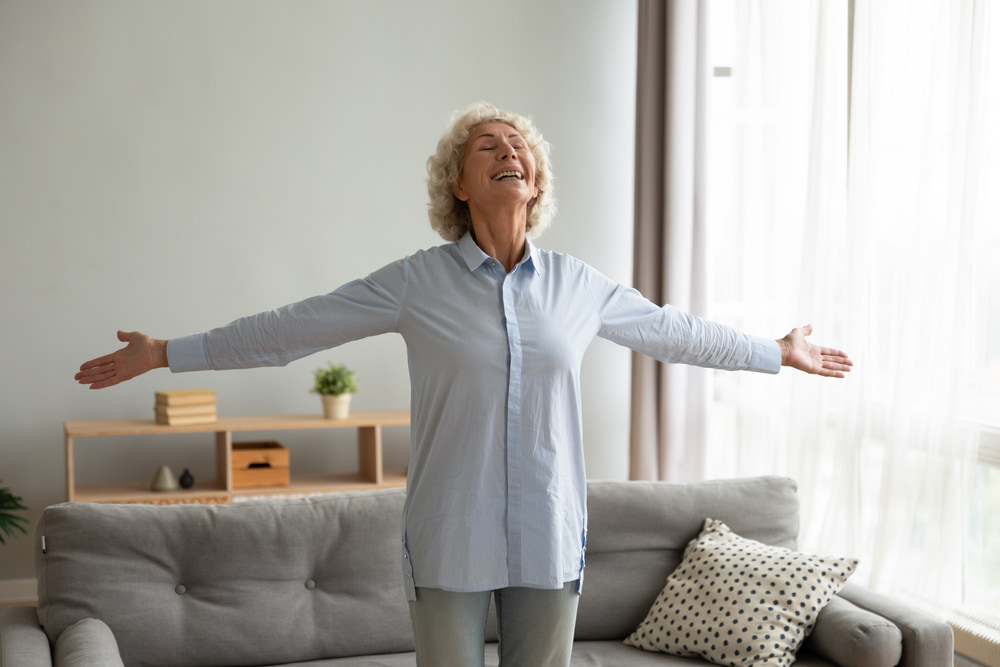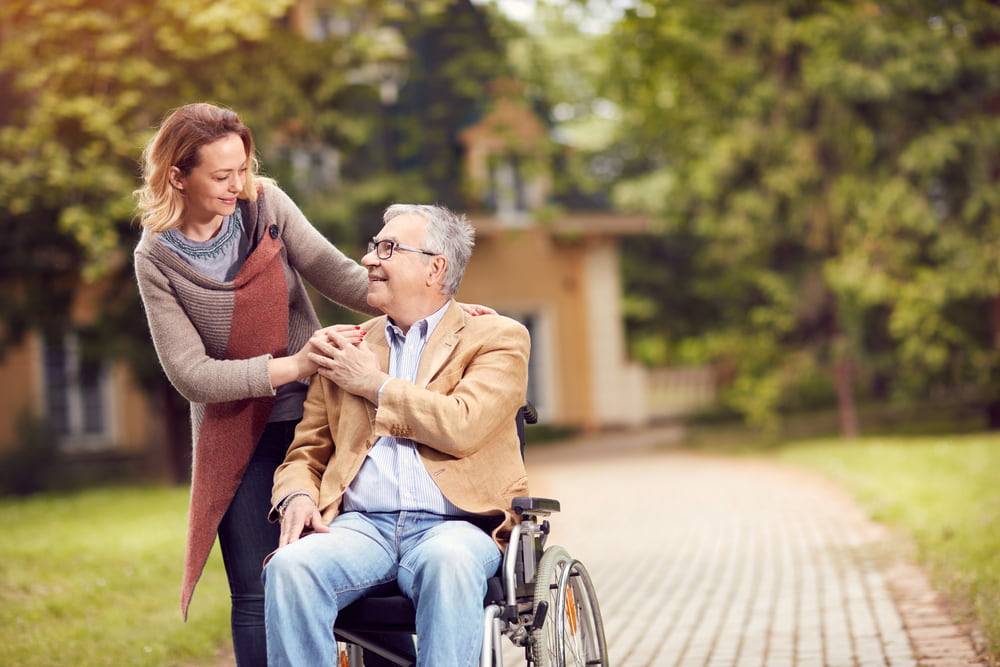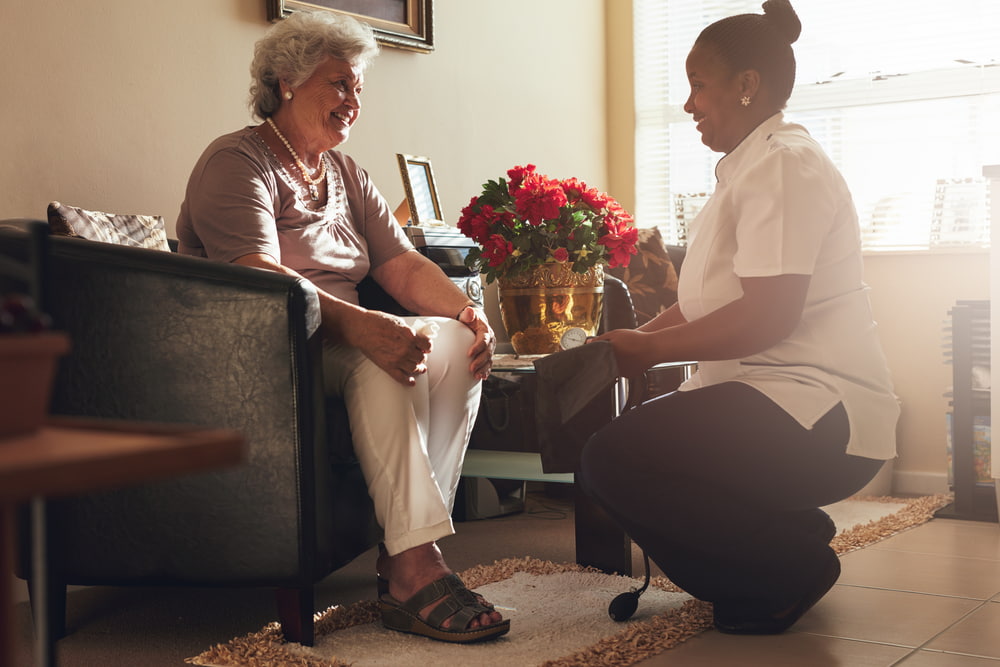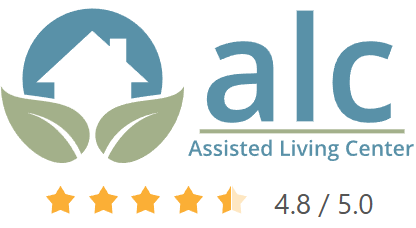Most people would like to imagine themselves living an independent and relatively worry-free life as they age. As you can imagine, this is largely dependent on how you organized your life, how well you earned before retiring, your general health, and a variety of other factors. Nevertheless, you can put your faith in reputable in-home caregivers to step into your shoes and help you out in times of need.
Regardless of how you accommodate your elderly, the question remains: how can you help them overcome their feelings of weakness and frailty? Read on to learn how to help the elderly feel empowered.
What does empowerment mean for the elderly?

Living life as an elderly person can be difficult. You may feel like you can’t do the things you used to. It can be difficult for the elderly to feel self-sufficient when they often find themselves in a position of dependence.
Relying on others can greatly help if they are worried about their safety. However, to a certain degree, they can feel as if they’re robbed of their dignity. What is a true example of empowering someone in need of help? And why is encouragement so important for elderly people?
What is an example of empowerment?
Empowered aging means having the ability to take care of oneself, make independent decisions, and maintain control over one’s life without relying on others. At a younger age, the example of empowerment is: getting a job, being able to drive, or learning to cook. For certain disenfranchised groups, empowerment has even more meanings.
Empowering seniors is vital to their recovery, and it may be as simple as:
- Treating them with respect and withholding judgment
- Being consulted before changes are made to their care plan
- Cultivating a relationship where they feel safe to express their feelings and desires
- Being given the opportunity to do things for themselves whenever possible
- Focusing on their strengths and abilities
- Encouraging their participation in decision-making processes
- Respecting their choices about their own lives
Why is empowerment important to the elderly?

Feeling empowered as you age fosters a sense of autonomy, dignity, and self-worth. When seniors feel empowered, they are more likely to take an active role in their own lives, making decisions that affect their daily activities, health, and well-being. This sense of control can significantly enhance their quality of life, as it reduces feelings of helplessness and dependency.
Empowerment also encourages continued engagement in social, physical, and cognitive activities, which are vital for maintaining mental and physical health. By respecting their choices and encouraging independence, caregivers and family members can help elderly individuals live more fulfilling and satisfying lives.
How does empowerment improve seniors’ health?
By promoting their active participation in their own care and lifestyle choices, you can provide seniors with a sense of empowered aging. They will then be more likely to embrace positive behaviors such as regular physical activity, healthy eating, and following their medical regimens. This proactive approach can help them manage chronic conditions more effectively and lower the risk of health complications.
Moreover, empowerment enhances mental health by fostering a positive outlook and reducing stress, anxiety, and depression. Social empowerment, through involvement in community activities and maintaining social connections, further contributes to emotional well-being. Overall, these lead to better physical and mental health, ultimately elevating their overall quality of life.
How does empowerment relate to elderly resilience?
While empowerment is more about taking control and making decisions, resilience is the ability to adapt to change and bounce back from difficult situations. Empowering seniors can help them to feel resilient in the face of difficulties. When they feel like they have a say in what happens to them, they are more likely to be able to cope with changes.
What is empowerment and disempowerment in aged care?
Help for older individuals can be delivered in diverse contexts, potentially impacting their sense of self-reliance, capability, and free-will. In some cases, it may be necessary for safety reasons. However, it is important to consider how this will affect the elderly person’s sense of self.
Aged care that is empowering will seek to promote the independence of the elderly person as much as possible. On the other hand, disempowering aged care takes away choices and decision-making from the elderly person. It can make them feel like they are a burden, and that their opinions don’t matter. Here are a few examples:
1. Ignoring preferences
It’s pretty disheartening for seniors when the people looking after them ignore what they like, whether it’s about what they want to eat, what they want to wear, or when they prefer to sleep. This kind of oversight can make them feel like their choices don’t matter at all.
2. Excessive control
Overly controlling behaviors can prevent them from having a say in their own healthcare, financial choices, or day-to-day schedules. This often means they’re not included in critical discussions, which significantly affects their lives.
3. Infantilization
It’s deeply disrespectful to treat elderly adults as if they were children—speaking to them in a patronizing tone, making choices on their behalf without their consent, or oversimplifying how we speak to them. Such actions can significantly undermine their dignity and self-esteem, making it crucial to interact with them as the capable adults they are.
4. Lack of privacy
Walking into their personal space without warning or discussing their health and private matters in public can undermine their dignity. Everyone deserves their own space and the chance to keep certain things private, no matter their age.
5. Physical restraints
Using physical restraints or sedatives just to make caregiving a bit easier, instead of really getting to the bottom of what the senior needs or why they’re acting a certain way, isn’t the right approach. It overlooks the real issues they might be facing.
How do you empower elders?
People can still feel empowered as they age if they have a sense of independence, good quality of life, and their dignity. Here are some of the best ways for empowering seniors:
- Encourage independence: Support them in performing daily tasks on their own, offering assistance only when necessary. This fosters a sense of autonomy and self-reliance.
- Involve them in decision-making: Include them in decisions that affect their lives, from healthcare choices to daily routines. Respecting their opinions and preferences helps them feel valued and in control.
- Provide education and information: Educate them about their health conditions, treatment options, and available resources. Knowledge empowers them to make informed decisions about their care.
- Promote social connections: Encourage them to stay socially active by participating in community events, joining clubs, or maintaining regular contact with family and friends. Social engagement can boost their emotional well-being and sense of belonging.
- Adapt their environment: Modify their living space to enhance safety and accessibility. Simple changes like installing grab bars, improving lighting, and reducing clutter can help them navigate their home more confidently.
- Encourage physical activity: Promote regular physical activity tailored to their abilities. Exercise can improve their physical health, mood, and overall quality of life.
- Support lifelong learning: Encourage them to pursue hobbies and interests or take up new ones. Engaging in mental and creative activities can keep their minds sharp and provide a sense of accomplishment.
- Respect their privacy and dignity: Treat them with respect and dignity, honoring their need for privacy and personal space. This fosters a sense of self-worth and respect.
- Offer emotional support: Be there to listen and provide emotional support. Acknowledge their feelings and experiences, which can help them feel understood and valued.
- Assist with technology: Help them learn and use technology to stay connected with loved ones, access information, and manage daily tasks. Technology can open up new opportunities for socialization and convenience.
How can empowerment be facilitated when providing support?
There are many ways caregivers can help their elderly client feel supported. Here’s how you can empower an elderly person:
1. Tackle ageism together
Reframing old age is key to entering the process of empowerment. You can do this by challenging the negative attitudes and stereotypes that exist about old age. Instead of viewing it as something negative, you can embrace it as a natural process that can be experienced in a productive and welcoming manner.
2. Acknowledge their expertise
The elderly are often not given enough credit for their years of experience. Acknowledge what they know and ask for their advice. This will help them feel valued and respected.
3. Use empowering language
The way you talk to and about the elderly person can have a big influence on how they feel about themselves. Caregivers who use language that is positive and respectful are more likely to earn their trust and respect and remind them of their self-worth.
4. Promote inclusion
Social isolation is a big problem for the elderly. Caregivers can provide excellent company and help them feel included by promoting social activities and opportunities for connection.
5. Help them stay connected
Technology can be a great way for the elderly to stay connected with the world. Help them to set up social media accounts, video call their friends and family, or find online groups that share their interests. This way, they won’t miss out, and will feel like they have a purposeful life.
6. Encourage self-care
Encouragement is important for the elderly, and this may be especially true when it comes to self-care. Help them to find ways to take care of themselves that work for them. This could include things like exercising more frequently, finding ways to relax, and taking a more health-conscious approach to their dietary habits.
7. Make everyday routines simple
Many everyday tasks can become more difficult as we age. You can help by breaking down tasks into simpler steps, or by helping them to find ways to make their lives easier.
8. Support their hobbies and interests
Helping elderly people to pursue their hobbies and interests is a great way to empower them. This can give them a sense of purpose and help them to feel more connected to the world.
Where in Los Angeles can I hire experienced in-home caregivers?

Here at A Better Way in Home Care, we can match you with some of the most dedicated and trustworthy caregivers in Los Angeles County, including excellent senior care in Beverly Hills and the surrounding areas. It doesn’t matter which part of LA you live in: we can help seniors accomplish a range of household tasks and make your everyday life easier.
In case you’re questioning the value of using a professional referral agency or wondering about payment options for senior care, feel free to reach out. We’ll respond to all your questions and create an extensive care plan, whether it involves continuous care or just sporadic visits to your elderly loved one. We’ll be there to assist them with grooming, light cleaning, medication adherence, doctor’s visits, and other routine activities.
Call us today and we’ll gladly match you with someone!








